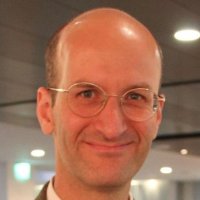Professor Emanuel Yi Pastreich
Emanuel Yi Pastreich, Ph.D. is Professor of Humanities, Humanitas College at Kyung Hee University; Co-Director at Global Convergence Forum; and President at Asia Institute.
Emanuel studied Chinese at Yale University (1987) and earned his M.A. in comparative literature from the University of Tokyo (1992), where he did all coursework in Japanese. After earning his Ph.D. from the Harvard University (1997), he started teaching at the University of Illinois, Urbana-Champaign as professor of Japanese literature. His research focused on the reception of Chinese vernacular narrative in Korea and Japan in the 17th and 18th centuries, a topic about which he has written two books.
Thereafter, he served as the director of the KORUS House (2005–2007), a policy think tank based at the embassy of the Republic of Korea in Washington D.C., and as editor-in-chief of “Dynamic Korea”, an online newspaper produced by the Korean foreign ministry. He founded the Asia Institute in 2007, a think tank located in Korea’s IT cluster Daejeon that is dedicated to the implications of technology for international relations.
Emanuel distinguished himself as an early advocate of a more rigorous environmental policy in Korea. While in Daejeon, he helped to found the Daejeon Green Growth Forum, a group of researchers at major institutes dedicated to encouraging environmentally friendly policies in the city of Daejeon and Korea as a whole. The Daejeon Green Growth Forum worked closely with the 3E Forum of Tsukuba, Japan.
He has carried out research projects on technology and its implications for society with the Korea Research Institute for Bioscience and Biotechnology, Korea Research Institute for Standards and Science, the Korea Research Institute for Geoscience and Materials and the Korea Institute of Nuclear Safety. In 2010, he cofounded the Global Convergence Forum, an association of research institutes dedicated to international collaboration in technology convergence.
Emanuel has also been active in the internationalization of local government in Korea. Starting with his work as advisor to the governor of Chungnam Provence from 2007, he has advised the mayor of Daejeon, the mayor of Gwangju, and the president of the Daedeok Innopolis Research cluster.
He writes on literature and technology policy, and also runs the blog Korea: Circles and Squares. He is best known for an article arguing that the relationship between the United States and China most resembles that between Great Britain and the United States in the early 20th century and an article proposing that the Chinese city Wenchuan be rebuilt as an ecocity after the Sichuan earthquake.
His books include The Novels of Park Jiwon (Translation of Overlooked Worlds) and The Observable Mundane: Vernacular Chinese and the Emergence of a Literary Discourse on Popular Narrative in Edo Japan. His articles include Is the world really becoming smaller?, To Take the Lead Globally Korea must build the Ferrari of Hand-held Devices, Making Korea the Undisputed Leader in Construction Globally, Korea as Number One in the Robot Revolution, The Eco-Currency: A Proposal, The Greening of America: Innovative Programs to Reinvent the United States, Technology’s Daedeok Valley to be Site of Commercialization Hub, Will the Next Renaissance Start in Korea?, and An American in Daejeon.
Read U.S. Scholar Explores Asian Literature. Visit his Facebook page. Read his LinkedIn profile. Follow his Twitter feed.
